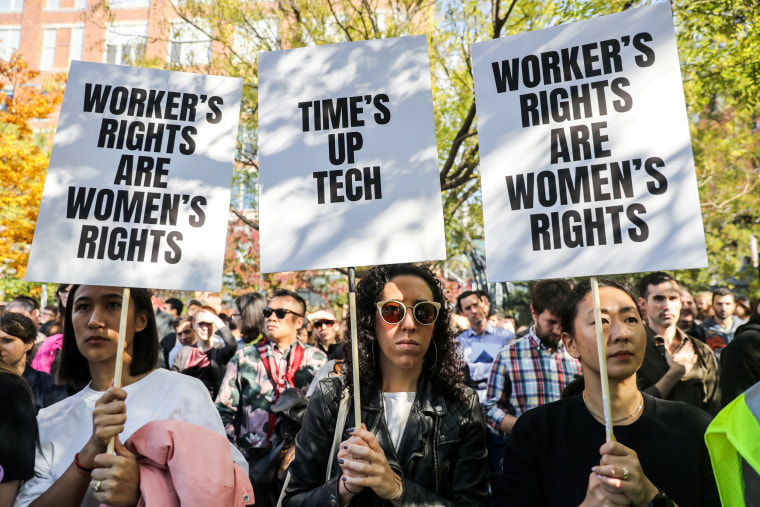Attorneys in San Francisco representing an Alphabet shareholder are suing the board of directors for allegedly covering up sexual misconduct claims against top executives.
The suit comes months after an explosive New York Times report detailed how Google shielded executives accused of sexual misconduct, either by keeping them on staff or allowing them amicable departures. For example, Google reportedly paid Android leader Andy Rubin a $90 million exit package, despite asking for his resignation after finding sexual misconduct claims against him credible. Similarly, Amit Singhal, was allowed to quietly resign after sexual misconduct claims were made against him, too.
The original report spurred a massive protest during which thousands of Google employees walked out of offices around the world. In response, the company ended its forced arbitration policy for sexual misconduct allegations and said it would start providing more transparency around sexual harassment investigations.
The new lawsuit, filed in California’s San Mateo County, asserts claims for breach of fiduciary duty, abuse of control, unjust enrichment, and waste of corporate assets. The attorneys say the lawsuit is the result of “an extensive original investigation into non-public evidence” and produced copies of internal Google minutes from Board of Directors meetings.
“The Directors’ wrongful conduct allowed the illegal conduct to proliferate and continue,” the suit reads. “As such, members of Alphabet’s Board were knowing and direct enablers of the sexual harassment and discrimination.”
The suit also accuses board members of employing contradictory standards:
“If you were a high‐level male executive at Google responsible for generating millions of dollars in revenue, Google would let you engage in sexual harassment. And if you get caught, Google would keep it quiet, let you resign, and pay you millions of dollars in severance,” the suit reads. “On the other hand, if you were a low‐level employee at Google and were accused of sexual harassment or discrimination, you would be fired for cause with no severance benefits. In this way, Alphabet and the Board were able to maintain optics and superficial compliance with its code of conduct, internal rules, and laws regarding sexual harassment. By appearing to take decisive action against a significant number of low‐level employees, and by concealing the blatant and widespread sexual harassment by senior Google executives, the Board avoided a much bigger scandal.”
In late October, Google CEO Sundar Pichai told employees that Google had fired 48 employees for sexual misconduct over the past two years.
The shareholder plaintiff, James Martin, has held Alphabet stock since October 2009.
Google did not immediately respond to a request for comment.
